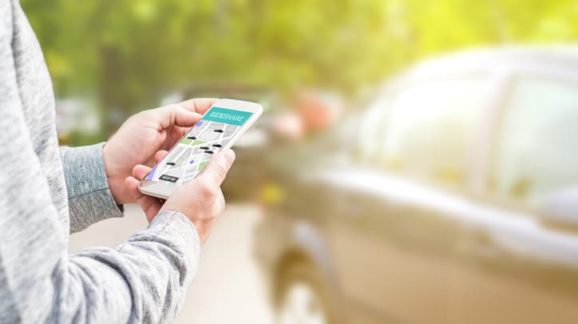Yes, Ridesharing Is Mainly a Part-Time Gig

Photo Credit: Getty
The vast majority of people who drive for rideshare company Uber in California do so for less than 40 hours or less a week. That’s the result of a survey Uber put out on about the drivers for its app-based service. The numbers are in line with other surveys on the subject. Most people who drive for rideshare service companies do so only part-time and therefore can’t really be considered traditional employees.
All this runs counter to the narrative pushed by people like California Governor Gavin Newsom that Uber and other rideshare companies like Lyft are exploiting their drivers by not classifying them as employees and paying for overtime, unemployment, and other state and federal requirements.
Libby Mishkin, Uber’s senior economist, published the survey results today on Medium.com. It found that not only is the typical California Uber driver using the online platform for less than the equivalent of a full-time week, but they are only drive during nine out of every 13 weeks in a quarter. Drivers that are online for at least 40 hours a week—“full-time” drivers—account for just 9 percent of the Golden State’s Uber drivers. “Online” covers all of the time drivers are using the app, including time spent waiting for and accepting trips, not just driving.
While those full-time drivers do carry on average more passengers than other drivers, they still only account for a quarter of the total Uber trips in the state. The remaining 75 percent of the time, the driving is done by people who drive for less than 40 hours a week. Sometimes much less. The largest single group are drivers who are online for 25 hours or less. They account for 42 percent of trips.
In short, the conventional wisdom that Uber and Lyft drivers are just people doing this for a few hours a week on average to earn a little bit of extra money is largely true. The people who do it as their main job account for a minority of the drivers.
The state nevertheless passed AB5 to force those companies to treat the drivers as employees rather than contractors, something Uber and Lyft say they cannot do and maintain the economic model on which their app-based system relies. The law’s limits on freelancing have caused trouble for numerous other professions and may explain why California lags the nation in the economic recovery.
Voters will have a chance to weigh in on this soon. On the fall ballot in California is Proposition 22, which would roll back AB5. The San Francisco Chronicle recently put support for the proposition at 39 percent and opposition at 36 percent, with the rest undecided. Uber and Lyft have said that if they don’t win at the ballot box or in the courts, they may be forced to end operations in the state altogether. That’ll be tough luck for the people who drive for those companies and need the little bit of extra money they get from driving to round out the bills at the end of the month.